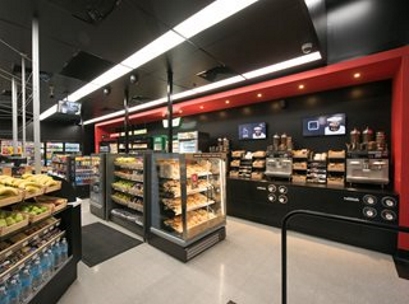 Convenience chain 7-Eleven is investing in innovation to ensure its network of franchised and corporate stores stays ahead of the game, according to its CEO Angus McKay.
Convenience chain 7-Eleven is investing in innovation to ensure its network of franchised and corporate stores stays ahead of the game, according to its CEO Angus McKay.
Describing the retail landscape as “brutal”, McKay said agility is an essential element of today’s retail scene.
“We’re investing in becoming better retailers,” he told Inside Franchise Business.
“We want people to have a business that’s healthy and makes money.
“You have to be patient and really be on your game and know what the customer wants, and be prepared for them to change their minds.”
A try and fail attitude is now central to the brand’s development, said McKay.
Actions include turbo-charging the food on the go offer, doubling its coffee output to an average 500 cups a day per store under the Coffee 500 project banner, adding daily fresh bakery items, introducing a parcels locker service, trialling digital payment options and providing a fuel value proposition.
This equates to giving customers choice with a range of fuels, quick access to pumps with a well-maintained forecourt, the fuel app to lock in low prices when they are available,being able to redeem the savings offer, and the ability to grab a coffee or meal on the go.
“We have a huge opportunity to lift our fuel game,” McKay said.
“Our vision comes back to what makes life easier for customers and easier for store operators,” reiterates McKay.
A different retail experience
According to McKay, consumers today want a different retail experience from the traditional convenience purchase.
With 32.1 per cent market share on the eastern seaboard, up 2.1 per cent from 2017, 7-Eleven claims to be the fastest growing convenience store chain in Australia.
Fuel retail has accounted for more market share, up 8.5 per cent, with like for like year to date up 2.3 per cent.
Merchandise has risen 10 per cent with like for like sales up 5 per cent.
Strong customer growth has seen transactions rise by 5 per cent.
But there are challenges ahead. McKay pointed out the categories likely to cause the chain some future challenges: tobacco, sugar and fuel.
“We need to be faster and thinking further ahead. As much as I value confectionery in stores it’s not now all the customer wants. Whether it’s healthy or a treat you have to offer a range.
“It isn’t about price. We need to offer good value and good service.”
New compact store model
In stark contrast to the white, bright decor of a traditional 7-Eleven store, a new-look fit-out is being rolled-out with a much darker hue for a more upmarket feel and, according to general manager retail operations, Braedon Lord.
“It’s about the customer sensory experience,” said Lord.
Typical sites to be refurbished will include those non-fuel outlets in high transit areas such as universities and transport hubs.
The convenience chain aims to provide the value for money options that today’s customers are seeking and to infill these smaller footprint stores in areas not serviced by 7-Eleven.
There are now eight of these refurbished stores and the plan is to transform all similar outlets by the end of the fiscal year 2019. The chain expects to have about 110 CBD style outlets.
The traditional offer in larger stores will remain, perhaps with the space-greedy parcel locker service adding income opportunities. A nearby small 7-Eleven outlet will take on the new mantle and offer a pared-down merchandise selection of 900 SKUs rather than the traditional 1600 SKUs.
Network expansion
Lord says the transformation has been successful, with stores picking up an extra 300 shoppers from their base of 700 customers.
The transformed stores have reinvigorated franchisees he adds and the cost of refurbishment has been covered by the franchisor.
Across the network there are about 90 corporate stores. “We want every one of our stores to be profitable. There’s nothing that we do not share from corporate stores to franchisees , to make lives easier and more profitable.”
There are 42 new stores opening bringing the total Australian 7-Eleven network to 685 outlets by June 2018.
The business is moving further into regions and into Western Australia, which McKay admits will be a test of the company’s supply chain.
McKay highlighted the innovations the chain has invested in now but added a call-out to suppliers for more fresh ideas.
Sarah Stowe is the editor of sister publication, Inside Franchise Business.






